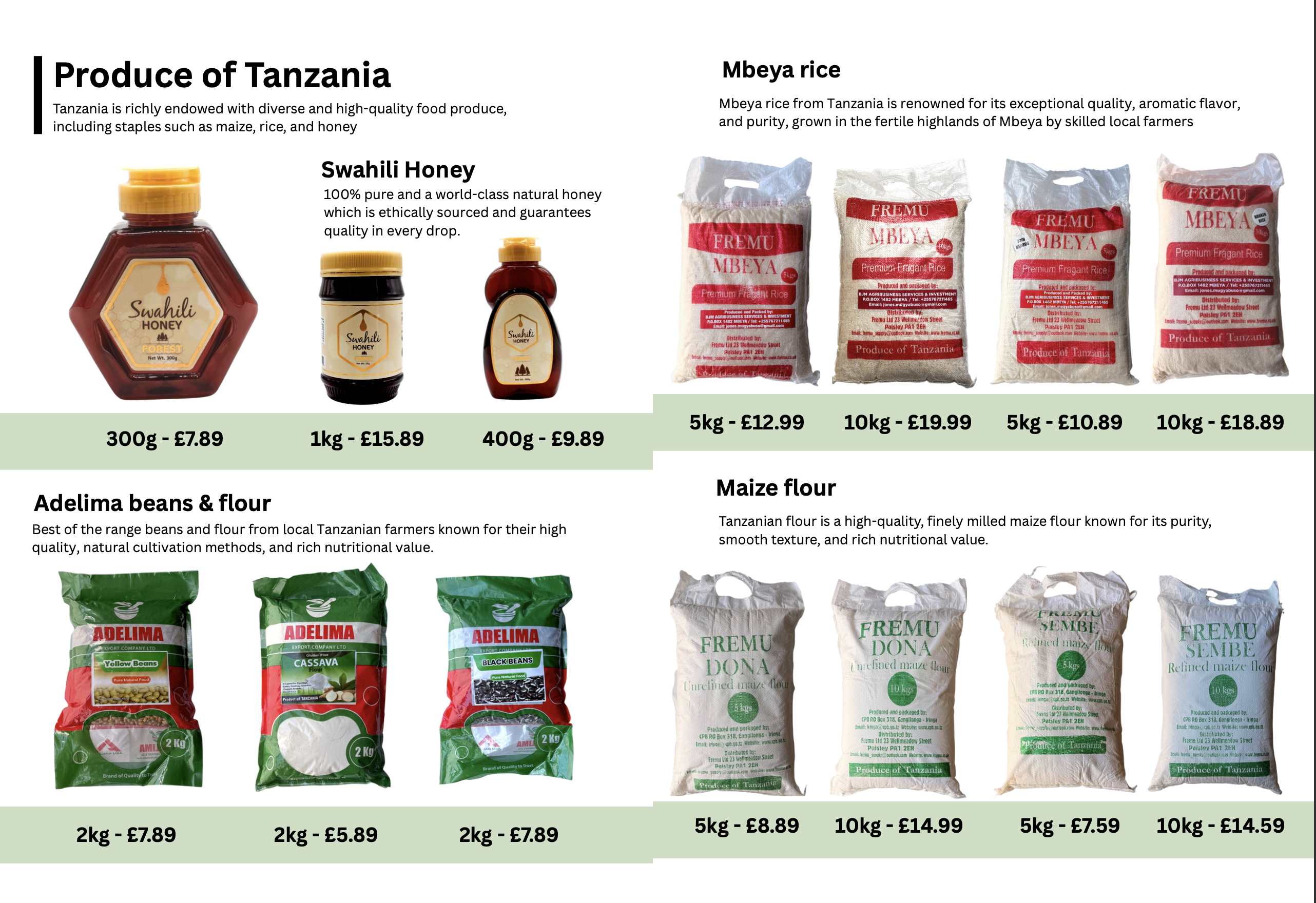
A new generation of entrepreneurs is connecting Tanzania’s vast agricultural potential with international consumers, overcoming logistical hurdles to put products like premium Mbeya rice on UK dinner tables.
DAR ES SALAAM, Tanzania – September 30, 2025 – On the shelves of a UK specialty food aisle, a bag of FREMU MBEYA Premium Fragrant Rice tells a story that extends far beyond its journey from a farm in Tanzania’s southern highlands. It’s the story of Kaizerege Kamara, a visionary Tanzanian entrepreneur who is methodically dismantling the barriers between small-scale local farmers and the lucrative global market. But more profoundly, his work is a powerful testament to the awakening potential of Tanzania to become a key player in ensuring regional and global food security.
Kamara, the Tanzanian representative for
FREMU Ltd, is at the forefront of a new wave of agricultural enterprise. His success is not a stroke of luck, but a carefully constructed model of partnership and persistence that transforms his lifelong passion for farming into a thriving, replicable international trade partnership.
A Personal Mission with National Implications
With over 25 years of experience, Kamara’s journey began with a single, deeply personal mission: to empower farmers. His worldview was shaped by watching his father, a large-scale coffee farmer, struggle with the volatility of international commodity prices that left his family’s fortunes at the mercy of distant markets. This formative experience instilled in Kamara a determination to create a model where producers could regain agency and “cultivate for profit.”
His first venture was a deep dive into one of Tanzania’s most unique resources: honey. For over two decades, he painstakingly built a value chain for his
“Swahili Honey” brand, a 100% pure and world-class natural honey. This endeavor was a masterclass in navigating the complexities of international logistics, quality control, and trade regulations, eventually leading to successful exports to the United States and Germany. It was this hard-won experience that laid the groundwork for a much larger ambition.
“I wanted to make sure farmers didn’t just farm for survival, but for profit and to achieve their goals. I came back to farming to help farmers like my father once was—so that when they till the land, they can be sure of markets and incomes.” — Kaizerege Kamara
Tanzania: A Sleeping Giant Awakens
Kamara’s venture is not happening in a vacuum. It is a testament to Tanzania’s strategic position as a sleeping giant of African agriculture. The sector is the undisputed backbone of the Tanzanian economy, employing approximately 65% of the population and accounting for nearly a third of the nation’s GDP. The country is blessed with over 44 million hectares of arable land—more than agricultural powerhouses like Kenya and Uganda combined—yet only about a quarter of it is currently cultivated.
While traditionally known for cash crops like cashews, coffee, and tobacco, Tanzania is rapidly diversifying. It is now one of Africa’s largest rice producers and a significant grower of maize, beans, and cassava. This strategic shift is positioning the country not just as an exporter of raw commodities, but as a reliable source of high-quality, value-added food products for a global consumer base increasingly interested in traceability and natural cultivation methods.
Forging the Global Partnership
The critical step, as Kamara knew well, is connecting this immense potential to a reliable market. A pivotal opportunity arose through a collaboration with FREMU, a UK-based company specializing in sourcing authentic African food products. He discovered that while FREMU was successfully importing goods from across the continent, including from neighboring Uganda , a reliable supply chain for the
“Produce of Tanzania” was missing.
“Tanzania was not prepared to supply these products to the UK market,” Kamara noted of the initial hurdles. He leveraged the support of crucial national institutions designed to overcome such barriers. The Tanzania Trade Development Authority (Tantrade) helped map out export-ready farmers. The Agricultural Growth Corridor of Tanzania (AGCOT), a globally recognized public-private partnership, provided the strategic link to the most productive regions. AGCOT’s model is to de-risk investment in agriculture by developing “clusters” where farmers, infrastructure, and agribusinesses are jointly supported, creating a fertile ecosystem for ventures like Kamara’s.
The Mbeya Success Story: From Farm to Paisley
AGCOT directed Kamara to the fertile southern highlands of Mbeya, a region renowned for its high-quality rice. There, he forged a crucial partnership with
BJM Agribusiness Services & Investment, a local company based in Mbeya that produces and packs the rice. This was not merely a transactional relationship; it involved a year of on-the-ground collaboration, training local farmers in post-harvest handling, and ensuring every step of the process met stringent UK import standards.
After a successful 2024 sample was praised for its
exceptional quality and aromatic flavor, a formal supply chain was established. Today, rice produced by BJM is distributed in the UK by
Fremu Ltd of 23 Wellmeadow Street, Paisley , and sold in
5kg and 10kg bags. The partnership has also expanded to include other staples, such as
“Adelima” brand yellow beans and cassava flour , which are sourced from local farmers specifically known for their
natural cultivation methods and rich nutritional value.
A Future Built on Policy and Opportunity
This burgeoning trade is significantly boosted by favorable international policies. The UK’s Developing Countries Trading Scheme (DCTS) has been a game-changer, eliminating tariffs on over 99% of goods exported from lower-income countries like Tanzania. This policy directly increases the profitability for Tanzanian farmers and makes their products more competitive on the UK market.
“This is a great opportunity for our government and our farmers to get a reliable market and a stable price,” Kamara emphasized. His venture serves as a powerful, living example of how strategic partnerships—linking farmers to local aggregators, who are in turn linked to international distributors—can uplift an entire agricultural community. It is the perfect embodiment of FREMU’s mission to deliver
“Fresh Finds for Every Kind”, securing a brighter, more prosperous future for Tanzania’s farmers and placing the nation firmly on the global food map
